Are you tired of happiness advice? Then, we got you covered with 11 best books on anti-happiness culture. You might be surprised to read about them in a blog called Optimal Happiness, but I am confident enough to mention these books since I still believe that happiness trumps anti-happiness culture almost any day.
Still, today, we are want to talk about the opposition to happiness advice, which I will call anti-happiness culture, which states that we should not pursue happiness and that there are good reasons for doing so. I have already partially addressed their arguments in my book, but today we will explore a little bit more about this anti-happiness culture, their origins, arguments, motivations, and 11 main books on this topic.
Books on Anti-Happiness Culture
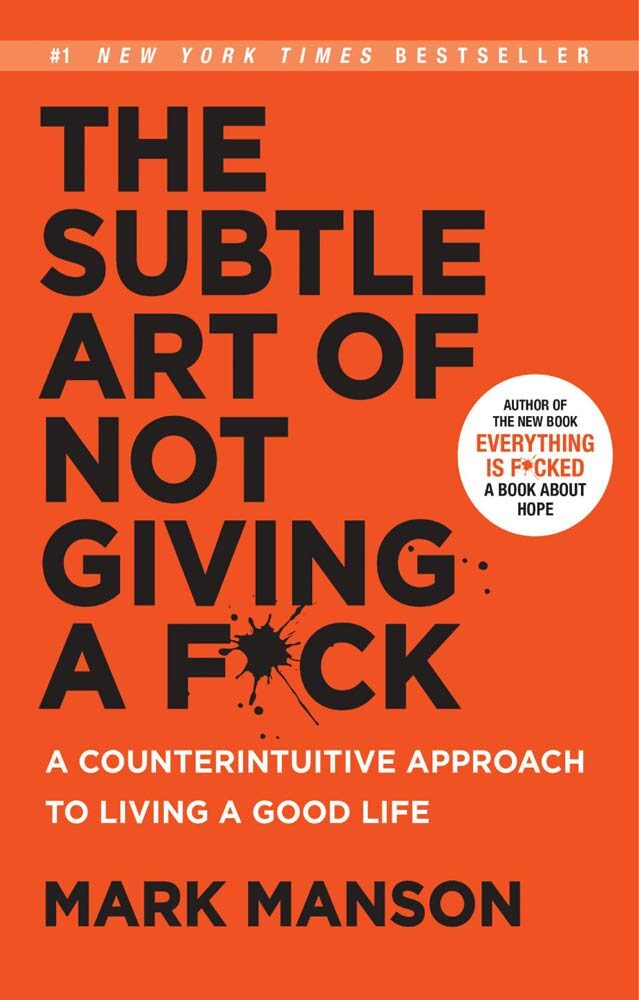
1- The Subtle Art of Not Giving a F*ck: A Counterintuitive Approach to Living a Good Life by Mark Manson
Many people know The Subtle Art of Not Giving a F*ck, and some of you have even read it. Certainly, you can find this book on the list of New York Times Best Sellers and on the bookshelves of major bookstores in the world. This book in many recommendation lists is often featured in media, and thousands of people reviewed it with high praise on Amazon and other similar websites.
However, if you are to read this book carefully, or just read my book first and this book second, you will see how negative and pessimistic this book really is. The author plainly states things like “F— Happiness” and later says “if you really want to be happy then do X” I hope you can see the contradiction in these statements, pessimism, and how it promotes anti-happiness culture.
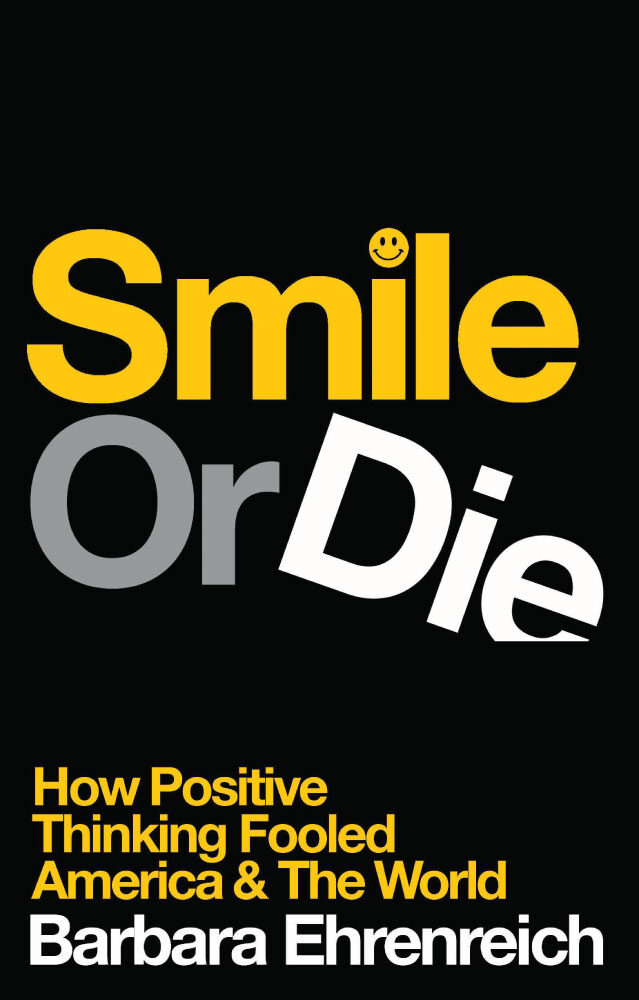
2- Smile or Die: How Positive Thinking Fooled America and the World by Barbara Ehrenreich
Upon reading more about Barbara Ehrenreich, I noticed that she faced some serious life challenges and ultimately overcame them. During these difficult times, she was repulsed by positive advice. People around her tried to cheer her up, but all these words sounded fake, unrealistic, and plain distasteful, which she well documented in this and many other books to her name.
However, we all struggle in life, some more than others. Especially when we are depressed and incredibly low, it can be hard to see the light at the end of the tunnel. Positive advice at these times may seem unrealistic and fake, but positivity is most definitely the way out. It is important to develop the correct positive tactics and learn how to manage your emotions through positivity in order to climb out of the dark holes we are prone to falling into.
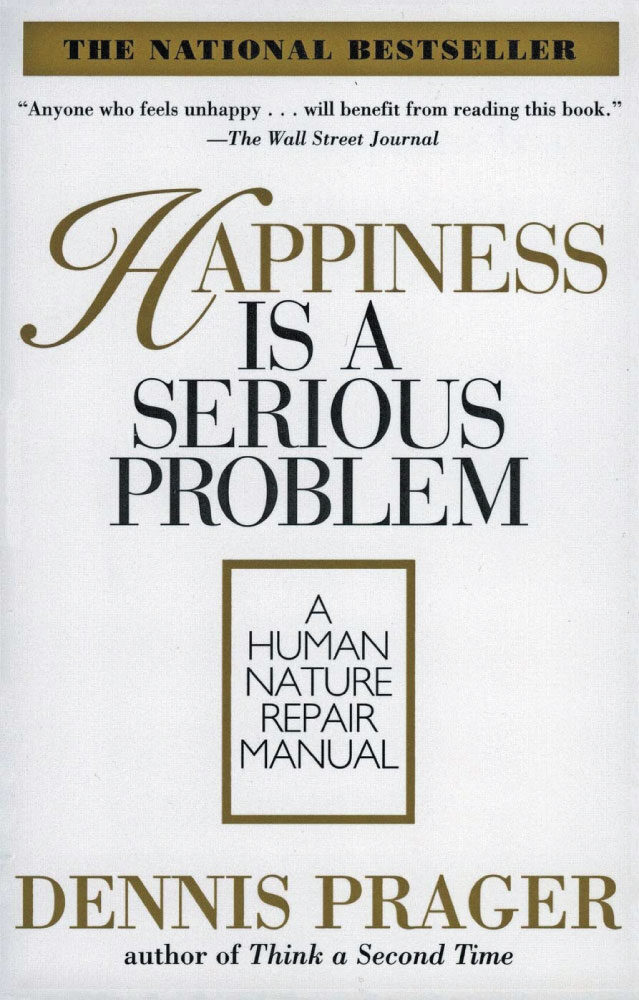
3 – Happiness Is a Serious Problem by Dennis Prager
Dennis Prager is another hopeful “realist.” What I mean by this is that he wants to be happy, but he finds too many reasons for why this is impossible. So yes, happiness is a serious problem, especially if you think of it in these terms and don’t have the right tools. Unfortunately, his limited perspective promoted anti-happiness culture, which is the issue.
4 – The Antidote: Happiness for People Who Can’t Stand Positive Thinking by Oliver Burkeman
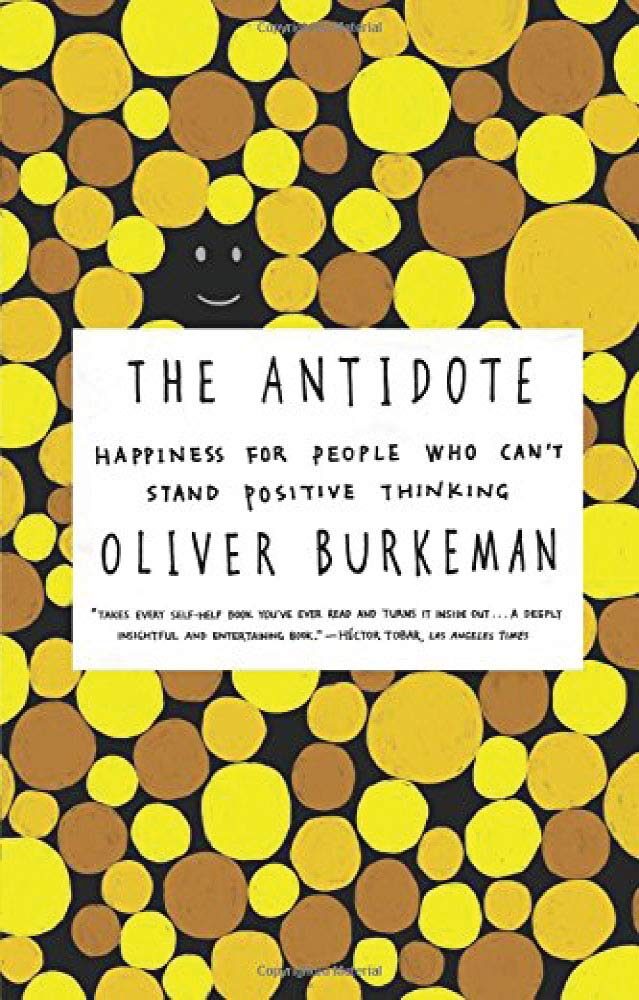
“Self-help books don’t seem to work,” states Oliver Burkeman. I’m not sure what self-help books he has been reading. In his personal book, he states that things like money, relationships, and good health will not necessarily lead to happiness. This is correct since happiness is not necessarily materialistic and in many cases, it backfires, making our lives worse off. I described as much in my own book, Optimal Happiness, explaining what does lead to happiness and what does not. Unfortunately, Burkeman only focused on the negatives, further promoting anti-happiness culture.
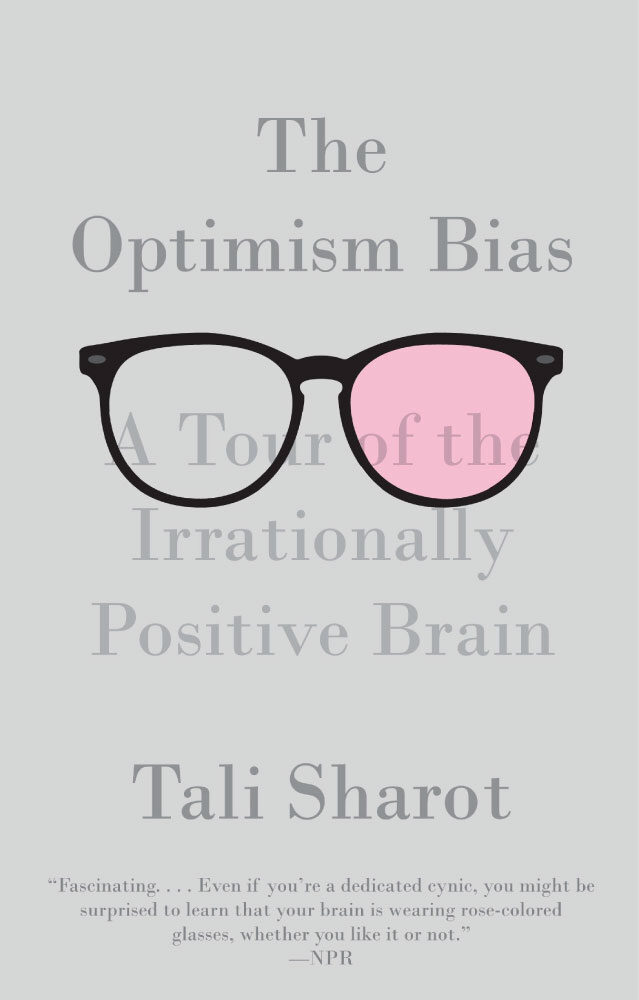
5 – The Optimism Bias: A Tour of the Irrationally Positive Brain by Tali Sharot
Tali Sharot states that we are hardwired for both happiness and unhappiness, meaning that he defends a more “realistic” approach to happiness. However, while our brains are naturally pre-programmed with certain information, we are not at the mercy of our biology, and we do have enough control over our mind to become Optimally Happy if we so chose to. Sharot presents some interesting findings regarding why we are terrible at predicting what will make us happy, but the book title can nudge us into believing that we are not supposed to be happy because of our biology, which is completely untrue.
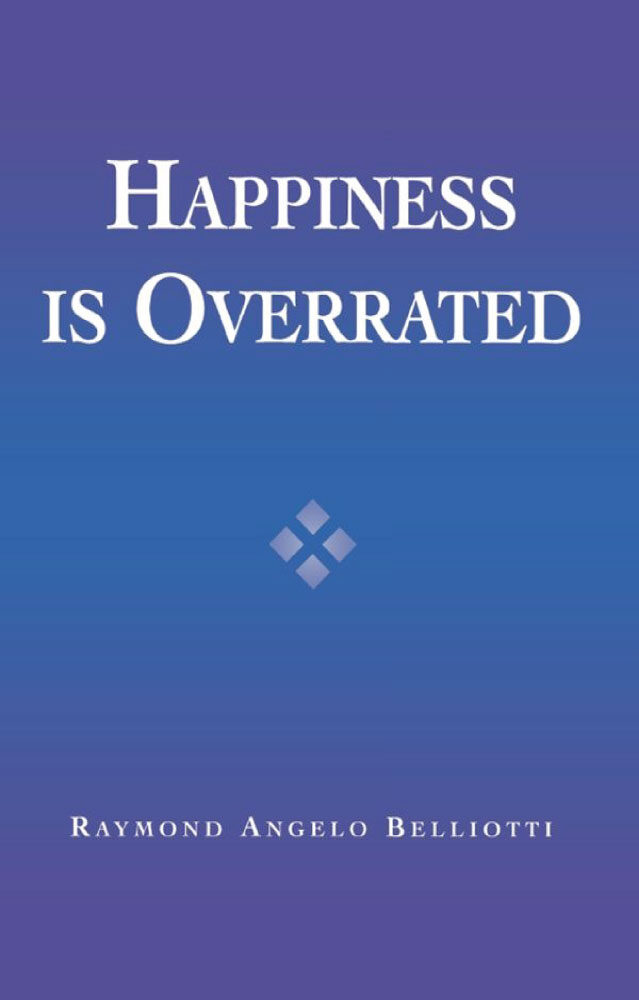
6 – Happiness Is Overrated by Raymond Angelo Belliotti
This is a quite pessimistic book by Belliotti, who states things like “sometimes happiness isn’t good at all.” He means that living a meaningful life is the key to “derive satisfaction from a life well lived.” However, if you read my book, the “meaning of life” is one of the Happiness Pillars. Now, Belliotti claims it to be the only pillar of happiness, making the same mistake many people do, which is not addressing other happiness pillars. In other words, we can live a meaningful and happy life at the same time.
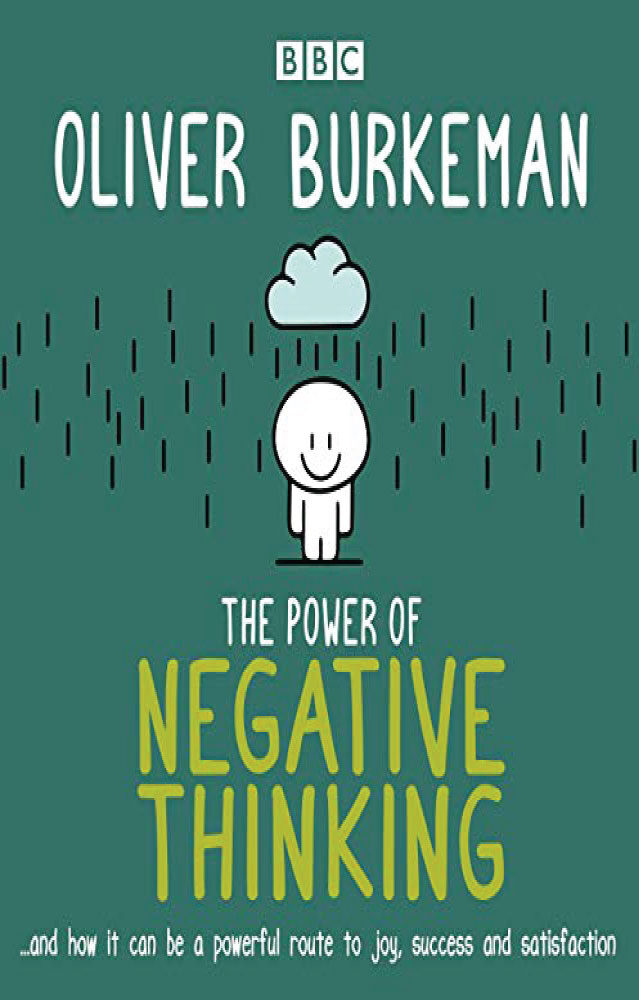
7 – The Power of Negative Thinking: And How It Can Be a Powerful Route to Joy, Success and Satisfaction by Oliver Burkeman
So you want to succeed, but sometimes you will fail, right? When this inevitably happens, some people will blame the power of positive thinking it to be a scam. This is the message I got from The Power of Negative Thinking. But happiness is not the ultimate fail-proof system for achieving everything in life. No, it’s a system that will make you feel good about your life no matter what happens and who you are. Sure, living in our current society, we are often told that we need to achieve more and more without an end. Given these requirements, it’s unavoidable that we will fail eventually, so it is just a good idea not to base our happiness on whether we are constantly failing or achieving and just to be happy.
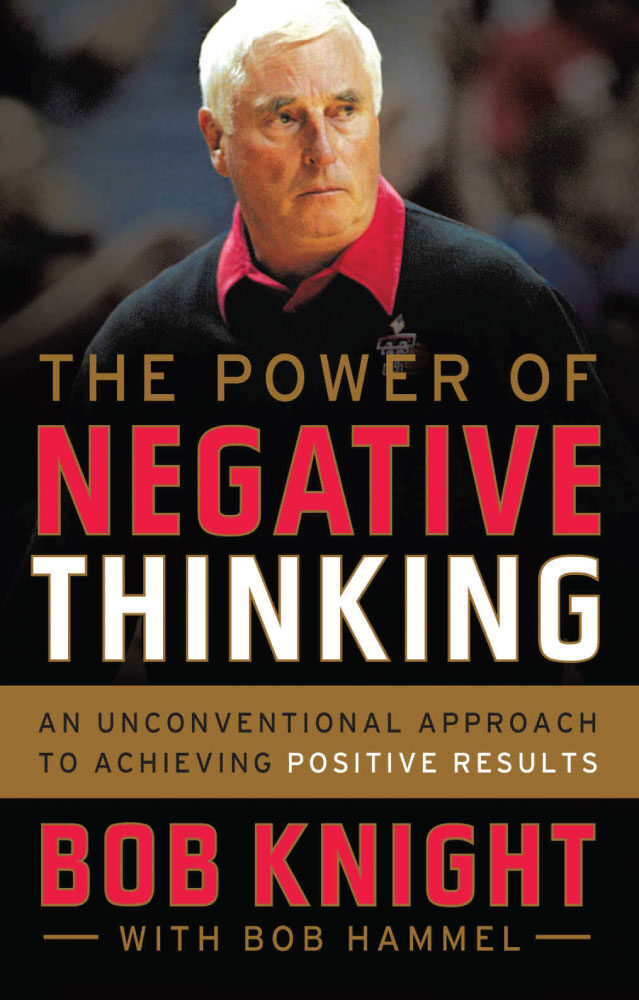
8 – The Power of Negative Thinking: An Unconventional Approach to Achieving Positive Results by Bob Knight
Similar to the previous title, we can see how much people believe in the power of a negative thought. Indeed, there are two titled “The Power of Negative Thinking,” with this second one written by basketball coach Bob Knight. He states that negative thinking is important because basketball can be a rather stressful sport where the feedback is almost instantaneous. You are either doing better, worse, or as good as your opponent, but your mind still can get in the way of your optimal performance.
So what should you do? In these situations, it’s good to learn from negative events and use them to our advantage, creating a psychological advantage over the opponent. Of course, some key lessons can be drawn from sports and applied to other parts of life, but you can extrapolate these conclusions yourself.
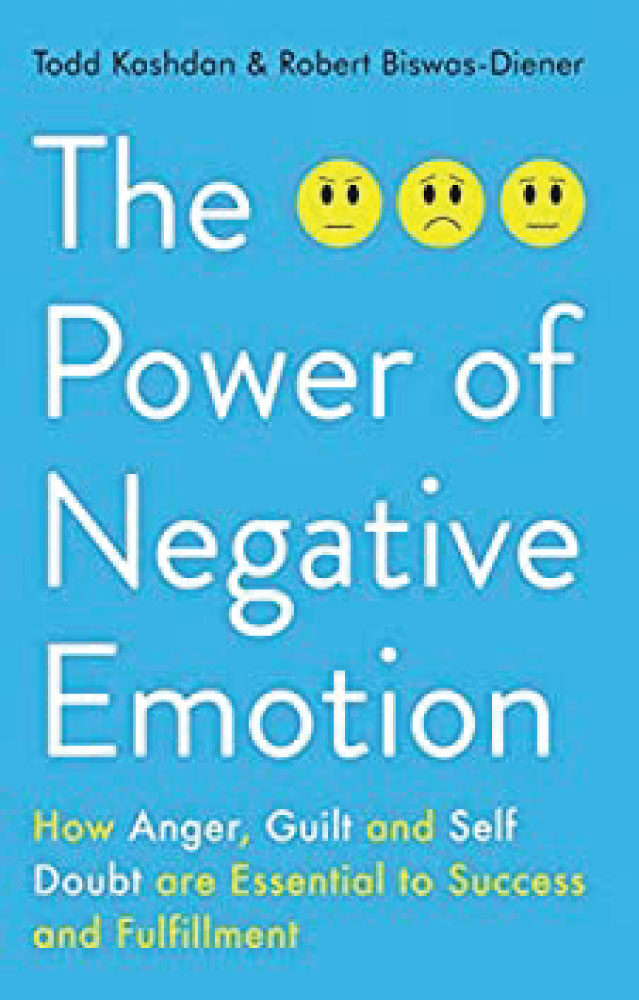
9 – The Power of Negative Emotion: How Anger, Guilt, and Self Doubt are Essential to Success and Fulfillment by Todd Kashdan
While researching Todd Kashdan, I found that he is not a negative guy. In fact, he is an expert on Positive Psychology. However, in two of his books, he insists that negative emotions can be good for us in the right context. Sure, this does not make Kashdan a negative person, but it does propagate anti-happiness culture since it advances the idea that “negativity is good for you.” This is bad because some people can incorrectly embrace negativity, which we already have too much of in this world. As such, while The Power of Negative Emotion may deliver positive advice, but it is incorrect advice all the same.
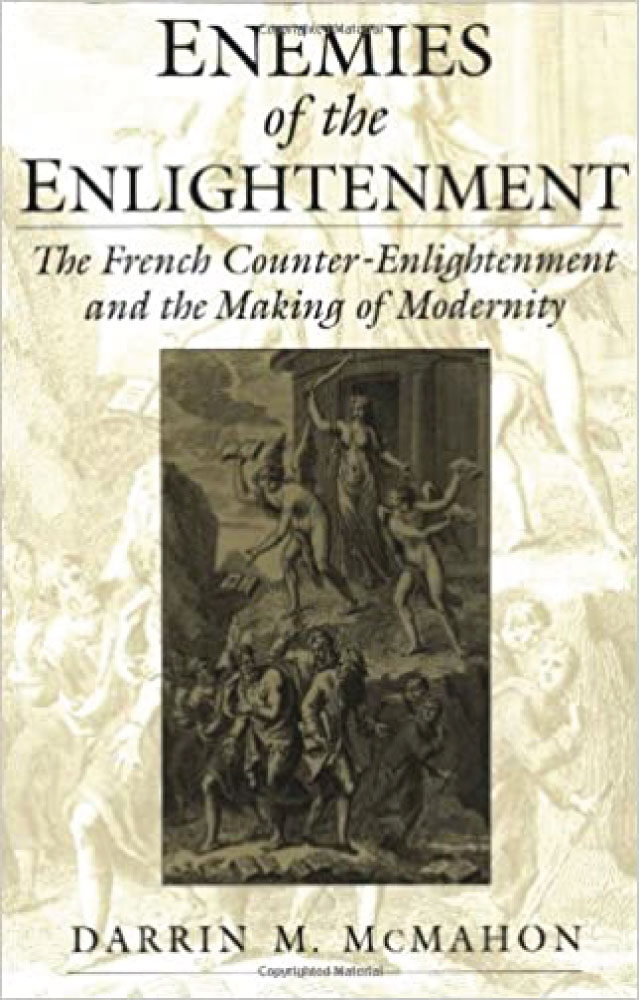
10 – Enemies of the Enlightenment: The French Counter-Enlightenment and the Making of Modernity by Darrin M. McMahon
Similar to The Power of Negative Emotions, Darrin McMahon is not a supporter of anti-happiness culture. Actually, his other books talk about the history of happiness. However, I put this book on this list because it actually attacks anti-happiness culture, meaning that it is on this topic. Sure, happiness and enlightenment are not the same thing, but people who pursue enlightenment generally pursue positive growth and, therefore, happiness. Lastly, anti-happiness culture used to exist during the age of enlightenment and it exists today. In other words, there will always be people who will promote negativity to you and the world, even if it ultimately kills us.
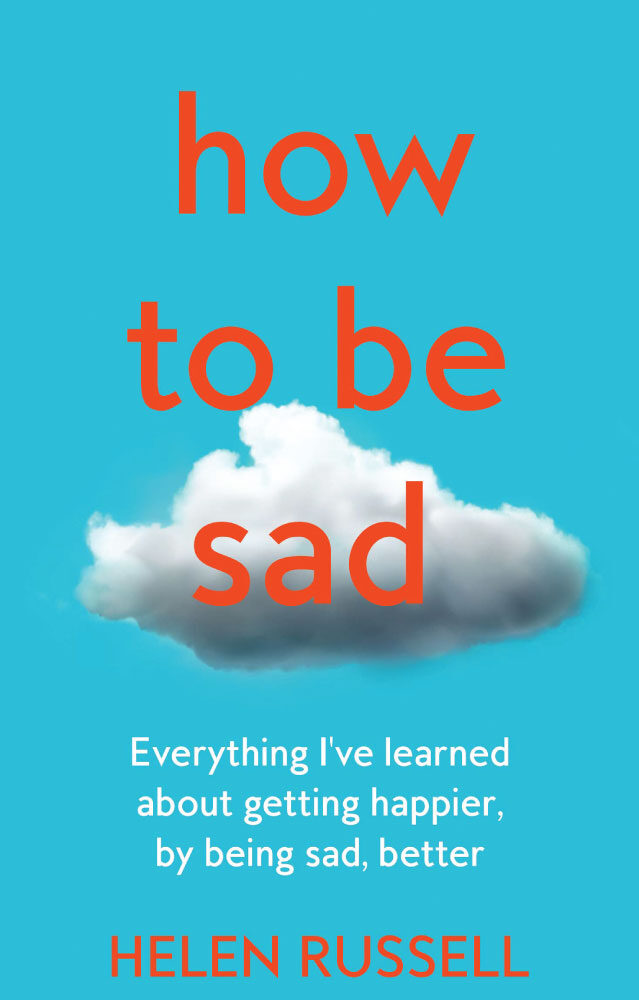
11 – How to be Sad: Everything I’ve learned about getting happier, by being sad, better by Helen Russell
Helen Russell is a Denish writer, coming from a country that is often ranked as one of the happiest in the world due to its high economic and social security standards of living. However, even surrounded by this wealth and security, people often feel unhappy, and they turn to the Anti-Happiness Culture for answers. This is indeed the case of the How to be Sad, where Russell states, “Sadness is going to happen, so we might as well know how to ‘do it’ right. And it’s time to start facing our problems and talking about them.”
More Books on Anti-Happiness Culture
I decided to add the following book titles to supplement this reading list on anti-happiness literature with the following titles. I haven’t reviewed these books yet personally, but still wanted to add them to this list:
12 – The Positive Power Of Negative Thinking by Julie Norem
13 – Toxic Positivity by Whitney Goodman
I have written a separate blog post discussing my perspective on toxic positivity, which you can find here.
14 – Toxic Positivity by Chase Hill
Another author also discusses this topic, but they portray positivity in a negative light, claiming that it can be toxic.
Mistake I Constantly See in Anti-Happiness Culture
Altogether, the central theme of the books on Anti-Happiness Culture is that happiness does not work universally, and in some cases, it does more damage than good. Certainly, people who went through serious life hardships can attest to this based on their experience, also backing up their experience with well-researched scientific findings that align with their arguments. Certainly, there are always people who will see the value of doing the opposite of what the majority are doing, such as there will be instances when killing will be totally justifiable. Similarly, some people will see the value of unhappiness and they will promote them. In turn, their arguments will be well-made and they will make sense on some level. After all, we can say almost anything and make it sound right, given the right words and context, and this is also true for the anti-happiness culture.
However, while the main argument of anti-happiness culture is pro-unhappiness, we can easily conclude that it is wrong advice simply because it does more harm than good. Again, I don’t want to revisit the overwhelming advantages of happiness over unhappiness, as they were well described in my book. Still, since happiness is superior to unhappiness, promoting anti-happiness culture becomes a morally wrong activity. In turn, fighting for happiness becomes almost like a life quest, which may be difficult since there is a lot of misinformation and negativity already in the world, but what else can we do? Give up and roll over? At least, I won’t do it. Oppositely, I will call out anti-happiness culture for what it really is: a misguided, misinformed, and inferior way of living.
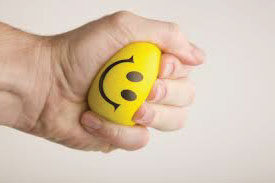
The Final Nail on the Coffin of Anti-Happiness Culture
My final argument against this Anti-Happiness Culture is a simple comparison between how many books there are on both subjects. There are these 11 already mentioned books that directly address anti-happiness culture. Certainly, there are many other books, people, and life events that are pro-unhappiness. Yet, happiness literature is huge in comparison. Virtually every other self-help book will address how to deal with negativity, how people overcame difficult life situations, or simply, how to be happier. Still, while there are so few books on anti-happiness culture, this does not mean that they should not be vigilant. For example, we already saw that The Subtle Art of Not Giving a F*ck is an international bestseller, which is a problem because it reinforces the idea that negativity is good for us, confusing people in an already negative world.
Of course, I am sorry for all people who suffered a lot in their lives, but honestly, this is not an excuse for lashing out, as we all have had such experiences. We all have traumas, nasty memories, and other life events that left a bad taste in our mouths. However, not all of us became destroyed, negative, and unable to recover because of these experiences. As such, we should aim at happiness and forgo Anti-Happiness Culture.












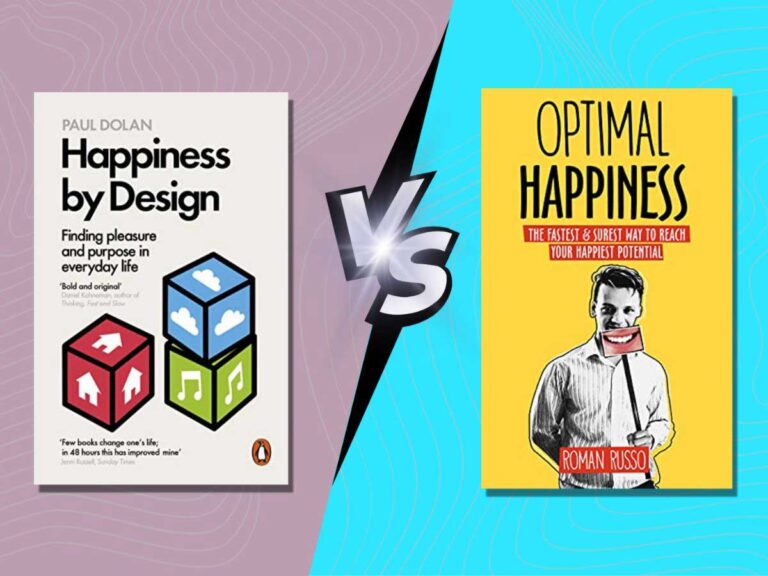


2 thoughts on “13 Best Books on Anti-Happiness Culture”
What i do not understood is actually how you are not actually much more well-liked than you might be right now. You’re very intelligent. You realize therefore considerably relating to this subject, produced me personally consider it from a lot of varied angles. Its like women and men aren’t fascinated unless it is one thing to accomplish with Lady gaga! Your own stuffs excellent. Always maintain it up!
Dear zovrelioptor, thank you for your reply. Writing a book was my first step. Promoting it is the second. This is perhaps why while content is good, it is not yet popular enough. We are working on it <3 Still, with your support we can spread the good word. For example, please like our social media or tell a friend about us:
https://www.instagram.com/optihappiness/
https://www.facebook.com/OptiHappiness
Have a great day!